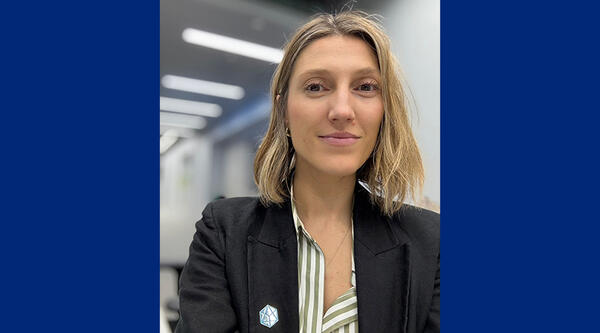Queen Mary University of London: The NIDUS project
Learn about the aim of the NIDUS project, as well as the team behind it, and the key outputs and next steps planned for the project.
- Centres of Excellence: Revolutionising dementia care research
- Newcastle University: The Pri-Dem project
- University of Exeter: The IDEAL-2 project
- You are here: Queen Mary University of London: The NIDUS project
Background
Most people with dementia want to remain living in their own homes for as long as possible. One way that this can be done is through home visits by professional carers. People with dementia can develop complex needs over time and for professional carers, being able to communicate and understand how best to meet those needs is vital. However, only 29% of care staff in England undertake any kind of dementia training. This skills gap can lead to barriers in providing high quality care, people with dementia and their carers report care that is often not personalised. This lack of training often causes breakdowns in relationships. This can severely affect the care of the person with dementia.
The importance of dementia training for carers is outlined in our report, titled ‘Because we’re human too: why dementia training for care workers matters, and how to deliver it’. The report calls on national governments to ensure all care staff have dementia training. It also recommends actions for local authorities and care providers to improve quality and uptake of dementia training. The report uses the latest evidence to show the significant benefits of dementia training to people living with dementia, care staff. Benefits include improved people’s quality of life and staff job satisfaction. This can and lead to savings in the wider health and care system.
Problems with behaviour and communication can often cause family a great deal of stress. This can often lead to the decision to move the person with dementia into a care home.
Previous research has shown that the most effective care for people with dementia is to take a ‘person-centred’ approach. This means tailoring care to the needs of each person and helping them make choices about their care. This requires carers to have proper training and to communicate effectively.
The NIDUS (‘New interventions for Independence in Dementia’) Centre of Excellence sought to develop and test person-centred strategies. The research aimed at increasing the time people with dementia could stay living at their own homes. It included providing training for family carers and professional carers.
What did the research address?
The researchers aimed to understand how to help both family and professional carers to best care for a person with dementia at home. This included addressing complex needs and the effects they can have on family carers and their relationships with people living with dementia. They also sought ways to help home care workers to improve the quality of care that they provide in care homes.
Who worked on the project?
The NIDUS project was led by Professor Claudia Cooper at Queen Mary University of London (QMUoL). It involved collaboration with experts at the Universities of Bradford, Reading and Exeter. Each collaborator brought a wealth of expertise. This included evidence gathering, sharing the best ways to interview participants, evaluating data, and ways to put findings into practice.
The project recruited two PhD students, one at QMUoL and one at Bradford. The project also included international collaborators, with specialists from Canada, the US and Australia.

"We're excited by the opportunities this investment will bring to improve lives for people living with dementia and their carers." - Dr Claudia Cooper, Alzheimer's Society Centre of Excellence, University College London.
What did the researchers do?
Firstly, the researchers learned about the best care strategies from current research. They also interviewed people affected by dementia, carers and home care professionals. This gave them a strong evidence base for their proposed programmes. They also examined how well similar programmes are working. This increased their understanding of how and why people with dementia lose their independence.
This evidence was used to produce two programmes, NIDUS-Family and NIDUS-Professional. NIDUS-Family is aimed at helping family carers to support people living with dementia to remain living independently at home, and NIDUS-Professional aims to support home carer workers support people living with dementia.
These programmes were co-developed with family carers and people affected by dementia. This ensured that the needs of both groups are being addressed. The professional programme also interviewed professional carers and other health and social care professionals. These programmes were first tested in small studies to make sure that they were effective and helpful for the people involved.
After successful completion of the test trials, the researchers carried out larger studies. These investigated how feasible and appropriate they were in a real-world setting.
The NIDUS-family study also tested the cost-effectiveness of the programme. It also looked at whether it could improve wellbeing and independence for people affected by dementia.
Meanwhile, the NIDUS-professional trial sought to test how well the programme can be adopted by care professionals. The researchers ensured that they recruited people for their studies from a wide variety of communities. This included people from rural and urban areas and from different cultural and socioeconomic backgrounds. They also considered the experiences of as many people as possible when developing their programmes.
It can be very hard for research findings to be translated into benefits and to practice in the ‘real world’. To address this, the team focussed on developing programmes that could be easily adopted into everyday care practice.
How has this improved dementia care?
Most people with dementia desire to be able to live in their own homes for as long as possible. To help them to do this, a programme of care that is centred on the person with dementia and that addresses their needs is essential. Before introducing programmes to routine practice, they must first be trialled and tested. This enables researchers to make modifications based off feedback.
The research team tested the NIDUS-Family support programme with over 300 people living with dementia and their family carers. The trial showed that the programme successfully enabled people reach their goals regardless of the type or stage of dementia.
NIDUS-Professional was trialled in three home care agencies with around 60 staff. The clients with dementia and their family carers were able to test the feasibility of the intervention in practice. The intervention was found acceptable and has informed the larger feasibility study. Alongside this, feedback revealed that homecare workers valued the rare opportunity to speak with peers, reflect on experiences and learn new strategies. They also reported feeling increased confidence and skills.
What happens next?
To ensure that these interventions reach people living with, the NIDUS-Family team secured further funding from the National Institute for Health and Care Research (NIHR) to implement NIDUS-Family in the NHS, and charity partners. Alzheimer’s Society will be working with the NIDUS-Family team to test the intervention within our own local services.
We used NIDUS-Professional as a best practice example of dementia training and education for homecare workers in our report, ‘Because we’re human too: why dementia training for care workers matters, and how to deliver it’. We also worked with the NIDUS-Professional team to calculate estimates of rolling it out nationally.
Details
Lead Investigator: Professor Claudia Cooper
Institution: Queen Mary University of London
Themes addressed: Independence at home
Amount committed: £1,981,505 over five years
Funding: 1 March 2018 – 31 July 2024






